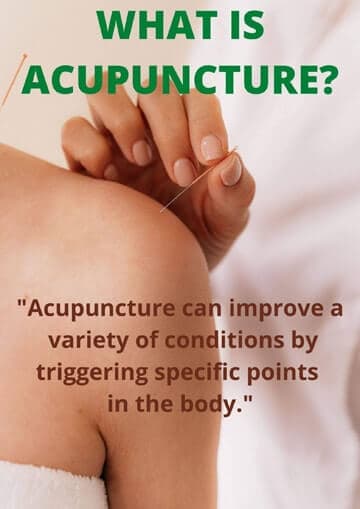Acupuncture can improve a variety of conditions by triggering specific points in our body. In modern medicine, acupuncture is a minimally invasive method to stimulate nerve-rich areas of the skin surface and soft tissues in order to influence muscles, glands, organs, brain and various functions of the body.
Each acupuncture needle produces a tiny injury at the insertion site, and although it is slight enough to cause little to no discomfort, it is enough of a signal to let the body know it needs to respond. This response involves stimulation of the nervous system, promoting circulation to the area, wound healing, and pain modulation.
The Chinese philosophy behind acupuncture is a bit more complicated to explain. Acupuncture is mainly based on the theory of Meridians. These meridians are actually a map of what modern science calls neural pathways. The meridians form a bridge to facilitate communication between internal organ systems and outer realms like bones, tendons, muscles and skin.
The origins of Chinese medicine come from a time in ancient China, a time of scientific ignorance, when people believed in ghost, demons and Qi energy. Western medicine, on the other hand, is founded on science and research. This is the modern standard, and the same expectations are put on Chinese medicine. This is why western culture has a hard time accepting Chinese medicine. But the fact is that Chinese medicine was developed over many thousand years through trial and error. We are still using it today all around the world because it does work. And it is now supported by some modern research. The theory behind acupuncture and modern medicine are actually more similar than you would think.
Learn more:
Follow us at
https://www.facebook.com/happipuncture
https://www.instagram.com/happipuncture

